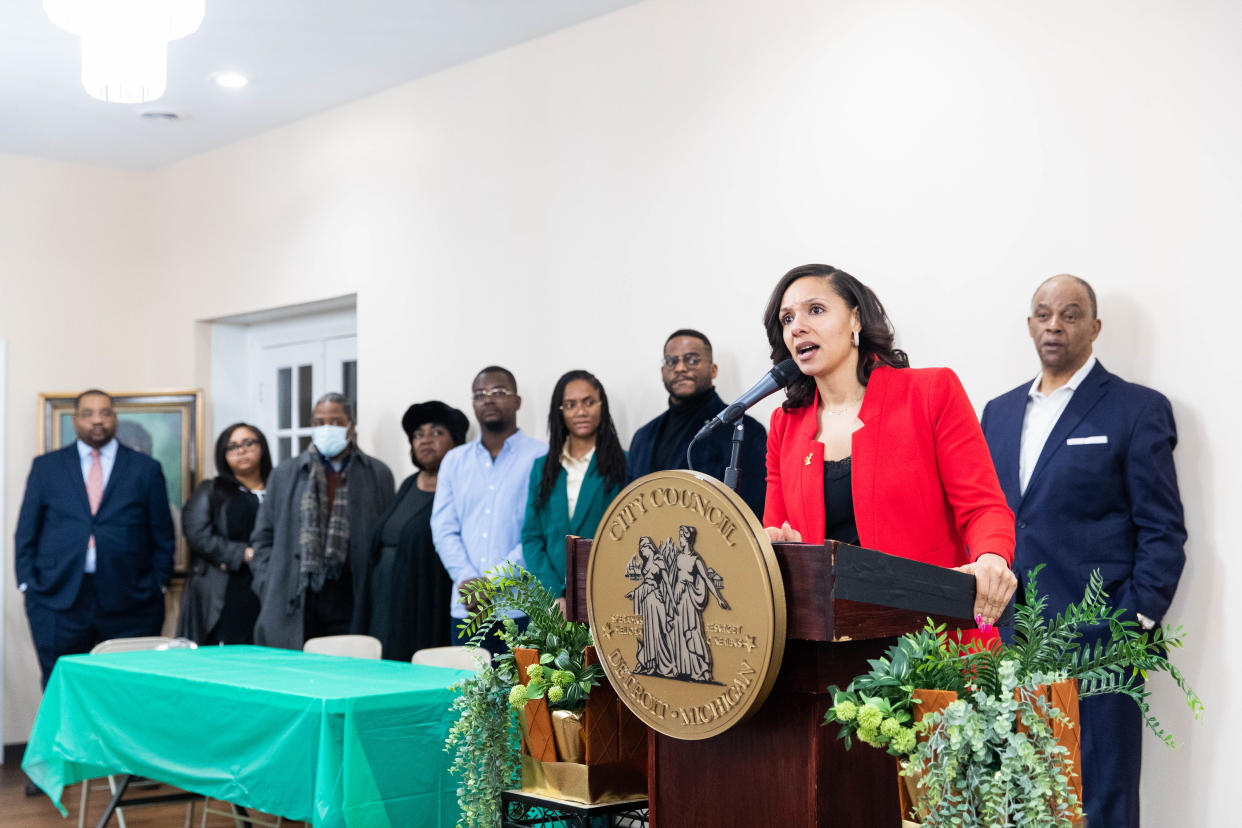A majority of Detroiters support reparations and say policymakers should, too, report says

More than half of Detroiters support reparations in some form and most say elected officials should make it a high policy priority to address racial inequality, according to a new report.
The findings, from a survey by the University of Michigan's Detroit Metro Area Communities Study and the Center for Racial Justice, look at Detroiters' views on reparations — defined by researchers as cash payments to Black Americans to counter the impacts of slavery and discriminatory policies. The results align with what Detroiters said at the voting booth in 2021 when they overwhelmingly backed a ballot initiative to form a reparations taskforce.
The 13-member body — charged with crafting recommendations for housing and economic development programs that would address the historical discrimination Black Detroiters faced — is expected to host its first meeting April 13.
What prompted the survey
The survey of 2,339 Detroiters was conducted last year from June 16 to Aug. 26.
"A primary motivation for the report is that there is this big debate right now about how we account for the past injustices that we see in this country. ... One of those options is a reparations policy, so we just wanted to sort of dig into what Detroiters feel about such a policy," said Jasmine Simington, a research fellow with the Center for Racial Justice.
Other cities — including Asheville, North Carolina; Evanston, Illinois; St. Paul, Minnesota, and Providence, Rhode Island — have adopted or initiated reparations legislation, according to the Citizens Research Council of Michigan.
What researchers found
Seventy-three percent of Detroiters said they believe the average Black person is worse off when it comes to income and wealth today than the average white person. However, Detroiters making $30,000 or less are least likely to hold this belief, compared with those with higher incomes.
Seventy-one percent of Detroiters who believe economic disparities exist between Black and white Americans support reparations. Meanwhile, 4 in 10 Detroit residents who said they believe the average Black person is better off financially than a white person showed support for reparations. And 38% of people, who said both a Black and white person are equally well off, still backed reparations.
The vast majority of Detroiters agree that the legacy of slavery and discrimination against Black people continues to affect them. While fewer than a third of people did not believe this statement, they still supported reparations.
Thirteen percent of Detroiters opposed reparations, but 41% of those residents said addressing racial inequality should still be a policy priority.
"Opposition to reparations does not necessarily conflate or equate to opposition to addressing racial inequality as a policy priority," said Erykah Benson, a Center for Racial Justice research fellow.
What's next
Researchers' next survey will look at how Detroiters want to see reparations implemented.
Reparations could come in the form of housing assistance, such as down payment help, or tuition for college to make it free, Simington said.
The U-M report aligns with the successful 2021 ballot initiative, said Keith Williams, chairman of the Michigan Democratic Party Black Caucus and a co-chair of the city's reparations task force. It also lines up with a separate poll he conducted indicating Detroiters' support for reparations, he said.
"(The ballot) language says, create a task force to make recommendations on housing and economic development. That's where all the harm was caused — the loss of wealth," he said.
He pointed to the lasting harms to Black communities committed by governments and institutions, including the razing of Black Bottom to make way for I-375, restrictive covenants that kept Black families from moving into neighborhoods and the $600 million Detroiters lost from overtaxation.
The reparations task force will meet online and in person at 4 p.m. April 13 at the Coleman A. Young Municipal Center's Erma Henderson Auditorium located at 2 Woodward Ave. in Detroit on the 13th floor.
Nushrat Rahman covers issues related to economic mobility for the Detroit Free Press and BridgeDetroit as a corps member with Report for America, an initiative of The GroundTruth Project. Make a tax-deductible contribution to support her work at bit.ly/freepRFA.
Contact Nushrat: nrahman@freepress.com; 313-348-7558. Follow her on Twitter: @NushratR.
This article originally appeared on Detroit Free Press: Report: A majority of Detroiters support reparations

